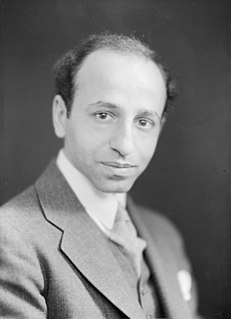A Quote by David Hume
Happy the man whom indulgent fortune allows to pay to virtue what he owes to nature, and to make a generous gift of what must otherwise be ravished from him by cruel necessity.
Related Quotes
People who have only good experiences aren't very interesting. They may be content, and happy after a fashion, but they aren't very deep. It may seem a misfortune now, and it makes things difficult, but well--it's easy to feel all the happy, simple stuff. Not that happiness is necessarily simple. But I don't think you're going to have a life like that, and I think you'll be the better for it. The difficult thing is to not be overwhelmed by the bad patches. You must not let them defeat you. You must see them as a gift--a cruel gift, but a gift nonetheless.
Souls that have lived in virtue are in general happy, and when separated from the irrational part of their nature, and made clean from all matter, have communion with the gods and join them in the governing of the whole world. Yet even if none of this happiness fell to their lot, virtue itself, and the joy and glory of virtue, and the life that is subject to no grief and no master are enough to make happy those who have set themselves to live according to virtue and have achieved it.
I can understand that the man you told me about has offended you, and I am very annoyed that he forgot himself like that. However, you must not consider what he did as coming from him but rather as a trial which God wishes to make of your patience. This virtue will be even more a virtue in you who are more sensitive by nature and have given less cause for the offense that you have received.
There is that in the soul of man which must respond to the highest in virtue. It may not respond at once. Human nature can easily be over-faced by examples too remote and austere. Moreover, human nature can easily deny God because the whole race has long been in rebellion against Him. Yet there is that in human nature which calls out to the supreme examples of virtue: owns, as it were, the intention of God who made it, and feels the unmistakable homesickness of the soul.
Most of the world's great souls have been lonely. Loneliness seems to be one price the saint must pay for his saintliness... Always remember: you cannot carry a cross in company. Though a man were surrounded by a vast crowd, his cross is his alone and his carrying of it marks him as a man apart. Society has turned against him; otherwise he would have no cross. No one is a friend to the man with a cross.
What a man does, that he has. What has he to do with hope or fear? In himself is his might. Let him regard no good as solid but that which is in his nature, and which must grow out of him as long as he exists. The goods of fortune may come and go like summer leaves; let him scatter them on every wind as the momentary signs of his infinite productiveness.
Where is the reward of virtue? and what recompense has nature provided for such important sacrifices as those of life and fortune, which we must often make to it? O sons of earth! Are ye ignorant of the value of this celestial mistress? And do ye meanly inquire for her portion, when ye observe her genuine beauty?





































